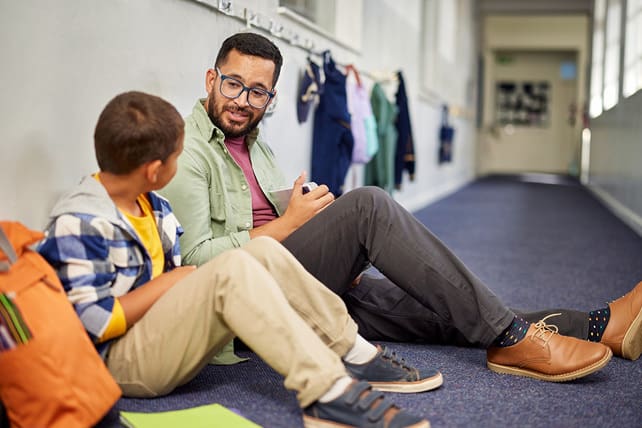When most of us think of “flourishing,” we tend to equate it with “success.” We might imagine advanced education, financial well-being, and a list of professional accolades.
These can be, without a doubt, components of flourishing. But from a Christian perspective, flourishing runs far deeper than superficial success. To truly flourish is to participate in God’s reconciling work—work that is rooted in one’s ability to empathize with the poor, downtrodden, and vulnerable in our world.
Empathy allows us to see others as God sees them. It allows us to enter into their joys and struggles, to bear one another’s burdens and to love our neighbors as ourselves.
But for many adults, empathy can be difficult. Sure, we feel bad for people in hard circumstances. But more often than not, guilt is our primary emotion. Sometimes we look away. Sometimes we take a one-time action. Either way, we’re often seeking to create a natural distance between us and the issue and—more importantly—the people.
But children are unique in their natural capacity to feel deeply for a person without guilt, responsibility, or feeling the need to find a solution. You can see this when a young child cries because another child is crying. As parents, we can nurture this God-given ability. Empathy is a superpower, as I like to tell my own children. We can also help them channel this superpower as they grow.
Children can feel alongside others powerfully, but they might not understand it or be able to process it on their own. Developing empathy requires ongoing, intentional emotional skill- and awareness-building from parents as well as opportunities to empathize and fruitfully process the sometimes difficult experience of confronting others’ hardship.
One way parents can help their children grow in empathy is by intentionally interacting with folks in different situations than their own.
For example, when my kids were in preschool, my church hosted a dinner for people experiencing homelessness. Instead of serving the food, we always sat down and ate dinner alongside those who attended. We simply enjoyed getting to know them and learning about their lives.
These experiences and experiences like them wire our kids to understand that human connection transcends circumstances. Most importantly, it eliminates the harmful concept of “us vs. them.” When we would see one of our friends on the street from the dinners, it wasn’t “a homeless man,” it was “John, from community dinners.”
We have all been made in the image of God. Teaching our children to remember this even when we’re tempted to distance ourselves from others or from others’ discomfort could change the trajectory of their lives.
We can help our children see, not avoid, some of the more challenging circumstances people face in our world. Whether it’s driving past barrios on a vacation in Mexico, someone asking for money outside the grocery store, or a movie about children in an orphanage, we can gently note the injustices in our world to our kids. Let them feel their sadness and discomfort, and then be present to help them process what they have seen. We have to be cautious not to try to make them feel better or center the disadvantages around our own experiences and judgments.

